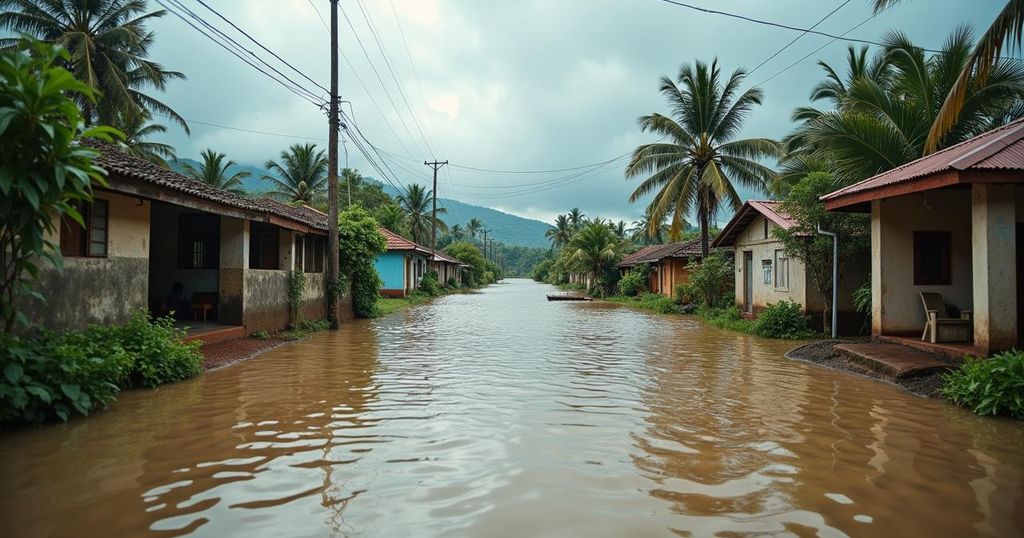West and Central Africa have recently experienced extreme flooding, particularly in Nigeria, resulting in over a thousand fatalities and millions affected. Areas such as Maiduguri are in dire need due to the floods, which followed a significant drought and were worsened by the collapse of the Alau dam. Experts link the flooding to climate change, yet many in the region remain disconnected from understanding these impacts. Immediate relief is necessary, alongside long-term strategies for infrastructure improvement and adaptation planning, highlighting the systemic issues of governance and resource management.
The recent extreme flooding in West and Central Africa, particularly in Nigeria, has resulted in catastrophic consequences, with over a thousand lives lost and millions affected. Areas like Maiduguri, the capital of Borno state, have been particularly devastated, leaving residents in desperate need of food and shelter. The flooding in Nigeria follows a brutal drought and has been exacerbated by the collapse of key infrastructure, notably the Alau dam, which officials had neglected despite warnings. The climate crisis is a significant factor, with unprecedented rainfall overwhelming the region and leading to extensive destruction. Local climatologists attribute the severity of these floods to changing weather patterns linked to climate change, yet there remains a disconnect among some communities regarding the understanding of climate dynamics. Furthermore, the Nigerian government’s failure to address environmental vulnerabilities has compounded the disaster, revealing systemic issues of corruption and ineffective resource allocation. Immediate relief efforts are critical, but long-term solutions focusing on infrastructure improvement and responsible adaptation planning are essential for helping Nigeria cope with future climate challenges. The international community is called upon to provide support and financial assistance to facilitate recovery and resilience against climate events.
The flooding situation in West Africa, particularly Nigeria, is a manifestation of broader global climate disruptions. This region is known for its vulnerability to climate-related impacts, largely due to inadequate resources for coping with such emergencies. The recent floods represent an escalation of the ongoing climate crisis that affects many areas, including those in Central Europe. As floodwaters ravish communities, the humanitarian needs grow increasingly dire. This situation is further complicated by existing socio-political challenges, including conflict and governance issues, which hinder effective disaster response and recovery efforts.
The catastrophic flooding in Nigeria highlights the urgent need for both immediate humanitarian assistance and long-term climate resilience strategies. While the government must act swiftly to support displaced populations, it is equally important for international actors to provide financial backing to assist in infrastructure repairs and climate adaptation initiatives. This event serves as a stark reminder of the multifaceted challenges posed by climate change, particularly in regions already grappling with socio-economic vulnerabilities, and it underscores the need for a coordinated global response to tackle the impending climate crisis in a meaningful way.
Original Source: insideclimatenews.org






